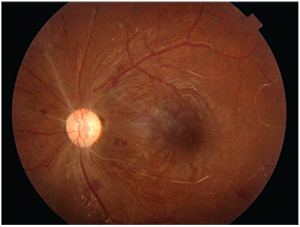Uveitis: Cause and Treatment.
Turning Vision Impairment into Vision Restored.
What is uveitis?
The uvea (Lat. uva, grape) is the darkly colored, blood rich part of the eye. The uvea includes the choroid (spongy blood-filled layer between the retina and the sclera), the ciliary body (produces the fluid which fills the eye), and the iris (the brown or blue part of the eye). The suffix “itis” refers to inflammation; therefore, uveitis is an inflammation of the uvea. If only the iris is involved, the inflammation is commonly called iritis; if both the iris and ciliary body are involved, the term is iridocyclitis. People afflicted with uveitis often experience pain, sensitivity to bright light, blurry vision/impairment, and redness of the eye.

Who gets uveitis?
Uveitis may be caused by a traumatic injury to the eye or by an infection inside the eye (like herpes or tuberculosis), but it is most commonly caused by an autoimmune disease. The immune system misidentifies tissue as foreign and attacks itself in the form of white blood cells and inflammatory substances. The uvea is more frequently misidentified in this way than other parts of the body. Some autoimmune diseases affect only the eye (like pars planitis and birdshot chorioretinitis). Other disorders like sarcoidosis, juvenile rheumatoid arthritis, Behcet’s disease and Vogt-Koyanagi-Harads syndrome affect the eye and may affect other parts of the body at the same time.
How is uveitis treated?
Uveitis is a serious condition that requires careful medical therapy to prevent complications like vision loss from glaucoma, cataract, and/or macular edema. Uveitis can usually be treated and put into remission, but is often incurable. Steroid drops, pills, or injections are usually the first line of treatment for uveitis; however, stronger immunosuppressive medicines such as cyclosporine, methotrexate, and azathioprine are often needed as well. These immunosuppressive medicines are commonly used to prevent graft rejection after heart or kidney transplants. Careful monitoring of blood testing is important in persons taking these medications. Our doctors have specialized training in the treatment of uveitis and the use of these medicines.